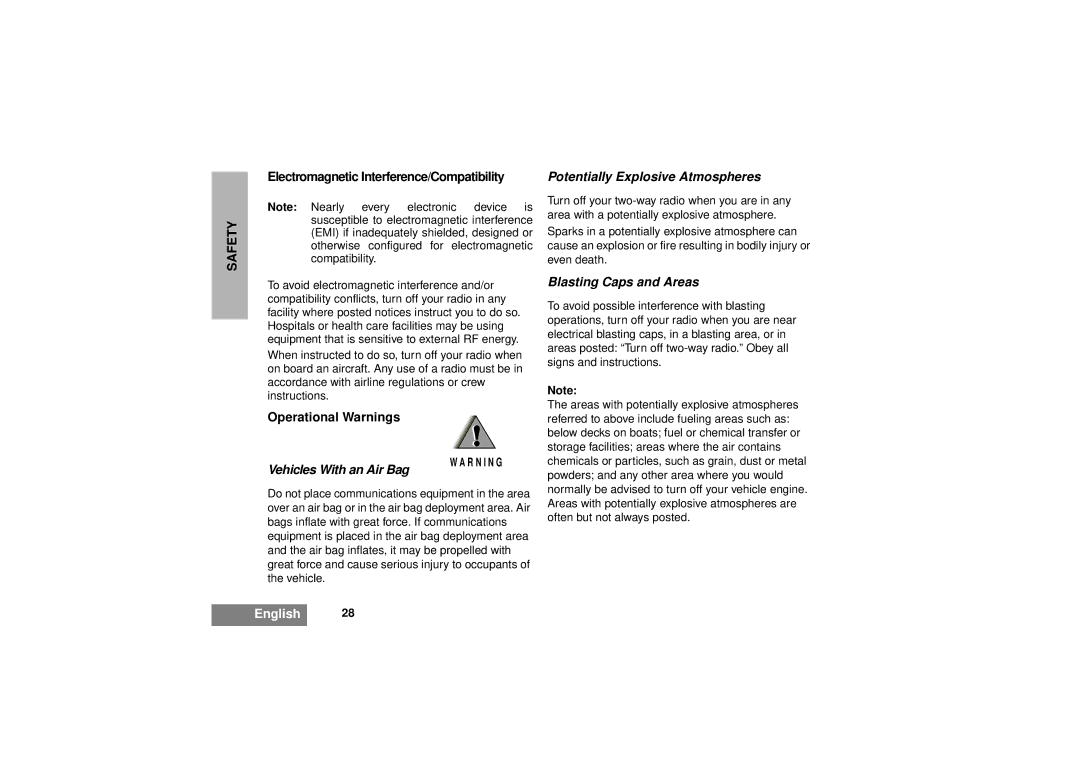
SAFETY
Electromagnetic Interference/Compatibility
Note: Nearly every electronic device is susceptible to electromagnetic interference (EMI) if inadequately shielded, designed or otherwise configured for electromagnetic compatibility.
To avoid electromagnetic interference and/or compatibility conflicts, turn off your radio in any facility where posted notices instruct you to do so. Hospitals or health care facilities may be using equipment that is sensitive to external RF energy. When instructed to do so, turn off your radio when on board an aircraft. Any use of a radio must be in accordance with airline regulations or crew instructions.
Potentially Explosive Atmospheres
Turn off your
Sparks in a potentially explosive atmosphere can cause an explosion or fire resulting in bodily injury or even death.
Blasting Caps and Areas
To avoid possible interference with blasting operations, turn off your radio when you are near electrical blasting caps, in a blasting area, or in areas posted: “Turn off
Note:
Operational Warnings
Vehicles With an Air Bag
!
W A R N I N G
The areas with potentially explosive atmospheres referred to above include fueling areas such as: below decks on boats; fuel or chemical transfer or storage facilities; areas where the air contains chemicals or particles, such as grain, dust or metal powders; and any other area where you would normally be advised to turn off your vehicle engine.
Do not place communications equipment in the area over an air bag or in the air bag deployment area. Air bags inflate with great force. If communications equipment is placed in the air bag deployment area and the air bag inflates, it may be propelled with great force and cause serious injury to occupants of the vehicle.
Areas with potentially explosive atmospheres are often but not always posted.
English 28
